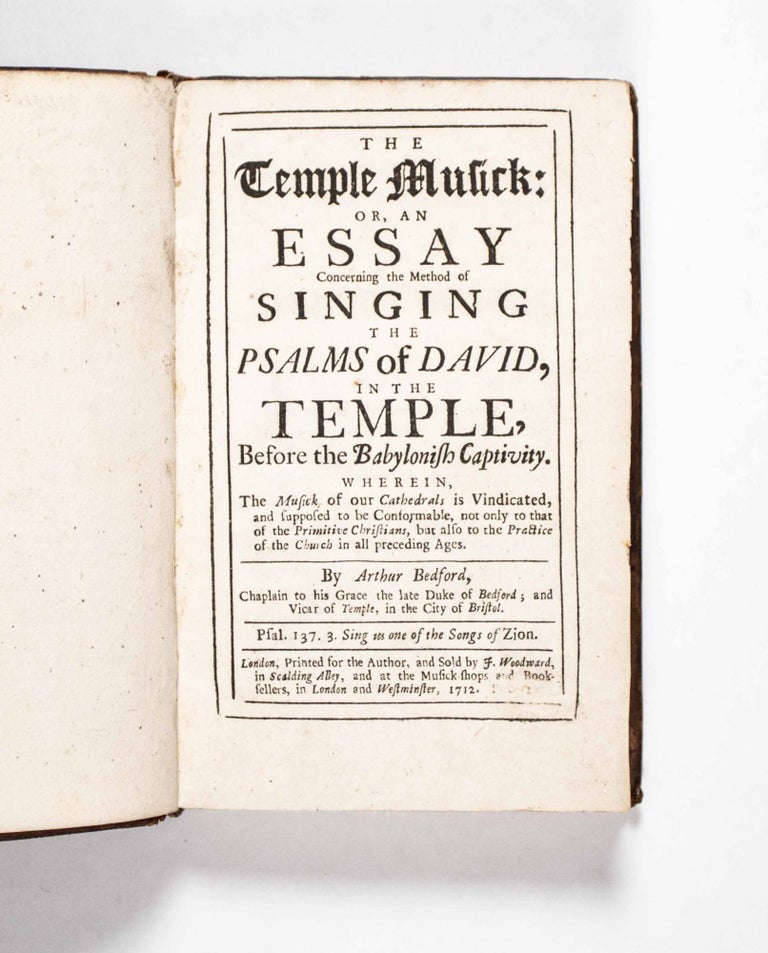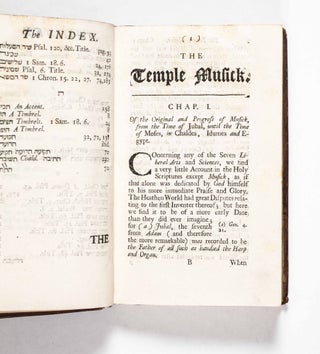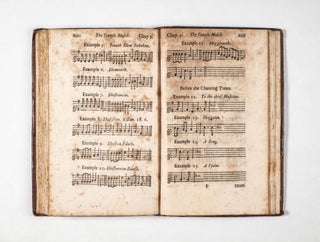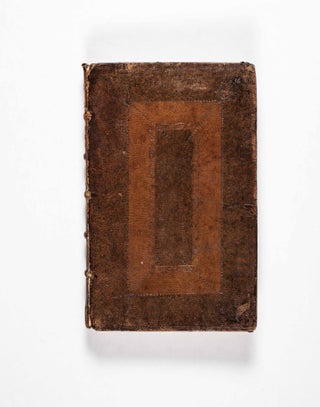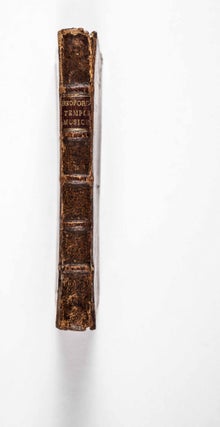The Temple Musick: or, an Essay Concerning the Method of Singing the Psalms of David, in the Temple, before the Babylonish Captivity
London: J. Woodward for the Author, 1712. Hardcover. Octavo. A-N8 O-Q4 R-S8 T4 (= 136 leaves; blank T4). [16], 253, [3, including errata]pp. title within plain double-ruled border. Citations in Hebrew (and occasionally Greek) throughout. Single line of musical notation in woodcut at p.73. Contemporary calf (lightly worn at extremities), spine lettered in gilt. Signatures O-Q in half-sheets with musical examples (moderately embrowned, and likely from a different press), else a very good copy.
Reissue of the 1706 Bristol edition with a cancel title page, the last edition to appear in the author's lifetime. The Church of England clergyman, Arthur Bedford (1668-1745) argues here that "the style of singing preserved in English cathedral worship was a close imitation of the liturgy of the temple in Jerusalem, and preserved traces of the religion of the patriarchs. He extended this argument in The Great Abuse of Musick (1711), where he sketched out a great tradition in English church music running from the Elizabethan composers, through Orlando Gibbons, to Benjamin Rogers. For Bedford the restoration of church music had a providential purpose and would play a role in the conversion of the Jews to Christianity" (Scott Mandelbrote in: ODNB online). An especially interesting detail of Bedford's treatise is the hypothetical comparison of Hebrew and Gregorian chant. Taken up at length by Martin Gerbert in his monumental De Cantu et Musica Sacra (1774), "their interdependence had been postulated previously by Arthur Bedford" (New Grove Dictionary).
A vigorous supporter of Semitic language study in the interest of sound exegesis, Bedford is now remembered chiefly for his staunch criticism of contemporary theater and a succession of attacks which he began to publish in 1705. "These drew particular attention to the blasphemous language and apparent idolatry that he identified in contemporary plays. They eventually culminated in A Serious Remonstrance in Behalf of the Christian Religion (1719), in which Bedford amassed a catalogue of 1400 texts of scripture supposedly ridiculed in drama" (ODNB). Some of his concern about the theater appears in The Temple Musick as well, as he objects to the use in plays and operas of tunes associated with hymns. Very Good-. Item #49161
References: ESTC T122069. Cf. Horne, Biblical Bibliography, p. 386 (ed. 1706). S. Sadie (ed.), The New Grove Dictionary of Music and Musicians (1980), 9:616. Not in Orme's Bibliotheca Biblica, which does, however, notice Bedford's Scripture Chronology Demonstrated by Astronomical Calculations (1730).
Price: $500.00

